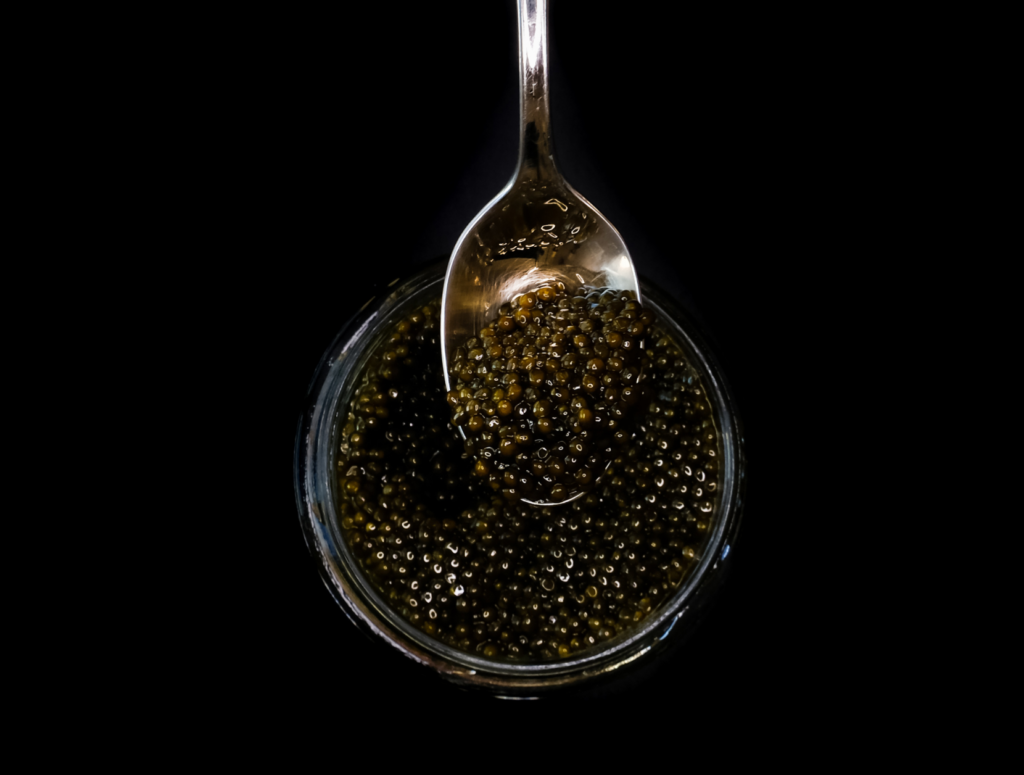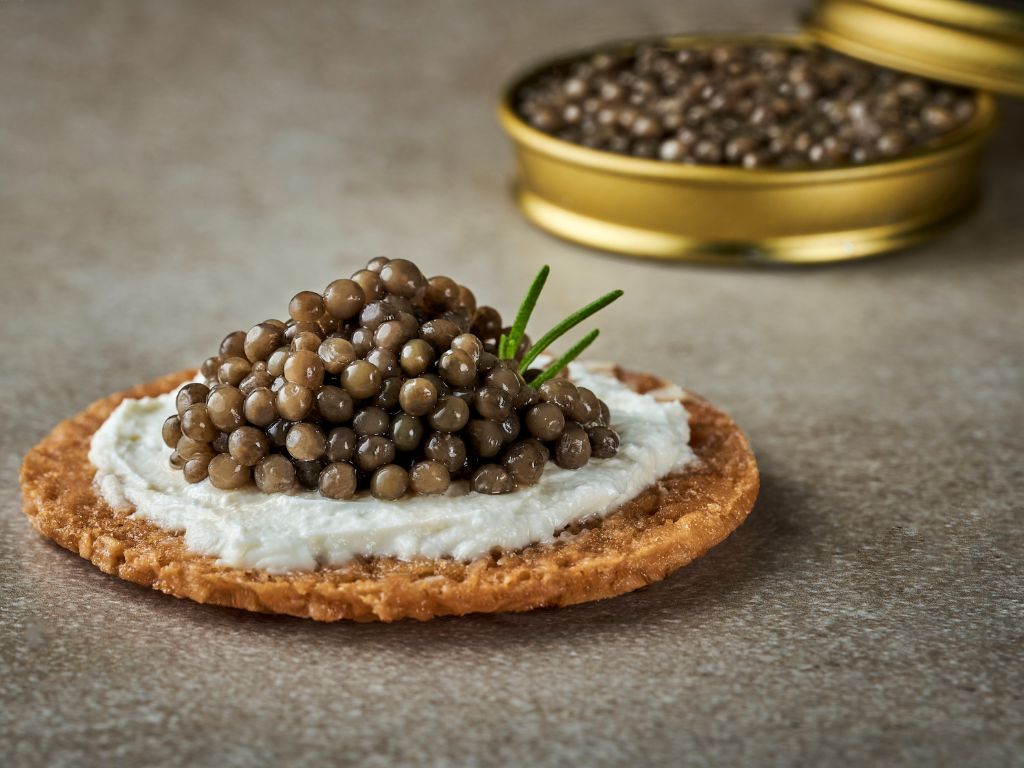
Singapore-based cellular agriculture pioneer Umami Bioworks has introduced its latest product, cultivated caviar, for high-end restaurants, retailers and consumers.
Joining the cultivated meat companies targeting premium markets, Umami Bioworks has a hybrid caviar alternative, made from a blend of cultured sturgeon cells and plant-based ingredients.
The Singaporean startup – one of the most well-known players in the cultivated seafood pace – is targeting Gen Z and millennials with its latest offering, who are driving the global demand for caviar, but at the same time also prioritise sustainability and ethical sourcing.
With the new innovation, Umami Bioworks is aiming to decarbonise one of the most highly sought-after foods. Also known as salted roe, caviar is acquired from slaughtered sturgeons and has always come at a high price, both ethically and environmentally. And overfishing has made sturgeons the most critically endangered species on Earth, according to the WWF, with 90% facing the threat.
“By combining cutting-edge science with a deep respect for oceanic heritage, we are offering connoisseurs an indulgence that delivers exceptional taste and texture without compromise,” said Mihir Pershad, founder and CEO of Umami Bioworks.
Why we need cultivated caviar

Research has linked caviar farming with a host of environmental detriments, such as natural habitat destruction, waste pollution, and biodiversity loss due to illegal overfishing. At the same time, high temperatures, water pollution, and rising sea levels are disrupting sturgeon populations, causing shifts in behaviour, reproduction, breeding cycles, and oxygen levels.
Still, it’s a $402M market, and its sales have been exploding thanks to TikTok. Gen Z influencers have driven the #CaviarTok trend, which has received millions of views, and contributed to the 74% hike in caviar sales since 2020. The market is set to further expand by 40%.
But given the environmental and ethical issues, this is unsustainable. As of 2024, 30% of people had been eating less seafood globally in the past two years, with nearly half (48%) concerned about overfishing and 35% worried about climate change impacts. Meanwhile, over 80% of people changed their dietary habits in this period, and 43% did so for sustainability reasons.
Umami Bioworks is aiming to cater to that demographic by addressing the sustainability and ethics debate, while offering an alternative to the currently strained supply chain. The firm is using its proprietary cultivated meat technology and blending it with certain plant-based to derive the indulgent taste and texture typical of conventional caviar.
The startup says it’s packed with omega-3 fatty acids, antioxidants, and essential micronutrients, and is geared towards high-end restaurants, chefs, and premium retailers.
“We’re thrilled to introduce a product that resonates with ethically conscious, younger consumers, who are reshaping the definition of luxury,” said product manager Gayathri Mani. “We will partner with leading brands and leverage Umami’s solution to develop a wide range of customised, culinary offerings for diverse applications.”
Premium products provide better margins for cultivated meat startups

There are several companies working to create more planet- and wallet-friendly versions of caviar. Some – like Cavi-Art, Zeroe, and Cavinoir – are offering plant-based alternatives, made from seaweed, sodium alginate, or agar-agar.
And like Umami Bioworks, others are working on cultivated caviar. These include CellMeat (South Korea), Marinas Bio (California), and Caviar Biotec.
They’re among a growing crop of cultivated meat status focusing on high-end species, which offer better margins and a product closer to price parity than their conventional counterparts, compared to innovations like cultivated chicken or beef.
Australia’s Vow has been cleared to sell cultivated foie gras in Hong Kong and Singapore, while French startup Gourmey has applied for approval in five markets (including the EU) for its version. Similarly, Israel’s Wanda Fish and US startups BlueNalu and Finless Foods are hoping to bring cultivated bluefin tuna to market.
Speaking of which, Umami Bioworks has submitted regulatory dossiers in “major markets across America, Europe, and Asia”, Pershad told Green Queen last November. It’s also in active discussions with the UK’s Food Standards Agency, and working with a pet food company to bring cultivated fish treats for cats to the US this year.
Green Queen has contacted Umami Bioworks for further details will update the story once we hear back.
The post No Comp-roe-mise: Asian Alt-Seafood Leader Swims Into Gen Z TikTok Trend with Cultivated Caviar appeared first on Green Queen.
This post was originally published on Green Queen.